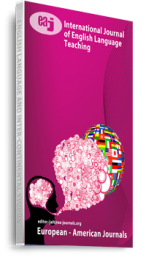This paper reports on an effectiveness of English Language Courses as EFL at the tertiary level, offered to first year undergraduate students of some departments of Jahangirnagar University. It aims to establish the case for using evaluation as a means for curriculum development. Currently, the EFL course is considered important for Bangladesh in general, and Jahangirnagar University students in particular, since our graduates face problems not only in coping with the demands of their respective academic disciplines. (e.g. the majority of academic texts are in English) , but also in finding suitable employment because of their lack of English skills. Since the newly introduced EFL course is still in its developmental phase it is necessary to find out the effectiveness to evaluate it and to see whether it fulfils student needs and course objectives. Datas for this study are collected from undergraduates who are currently studying EFL and some other who have recently completed their courses. This investigation reveals that students are not much benefited in learning English. There are number of limitations, which make these EFL courses ineffective. The investigation concludes with several implications and suggestions for those concerned for EFL learning.
Keywords: EFL, Effectiveness, Jahangirnagar University, Tertiary level, Undergraduates

